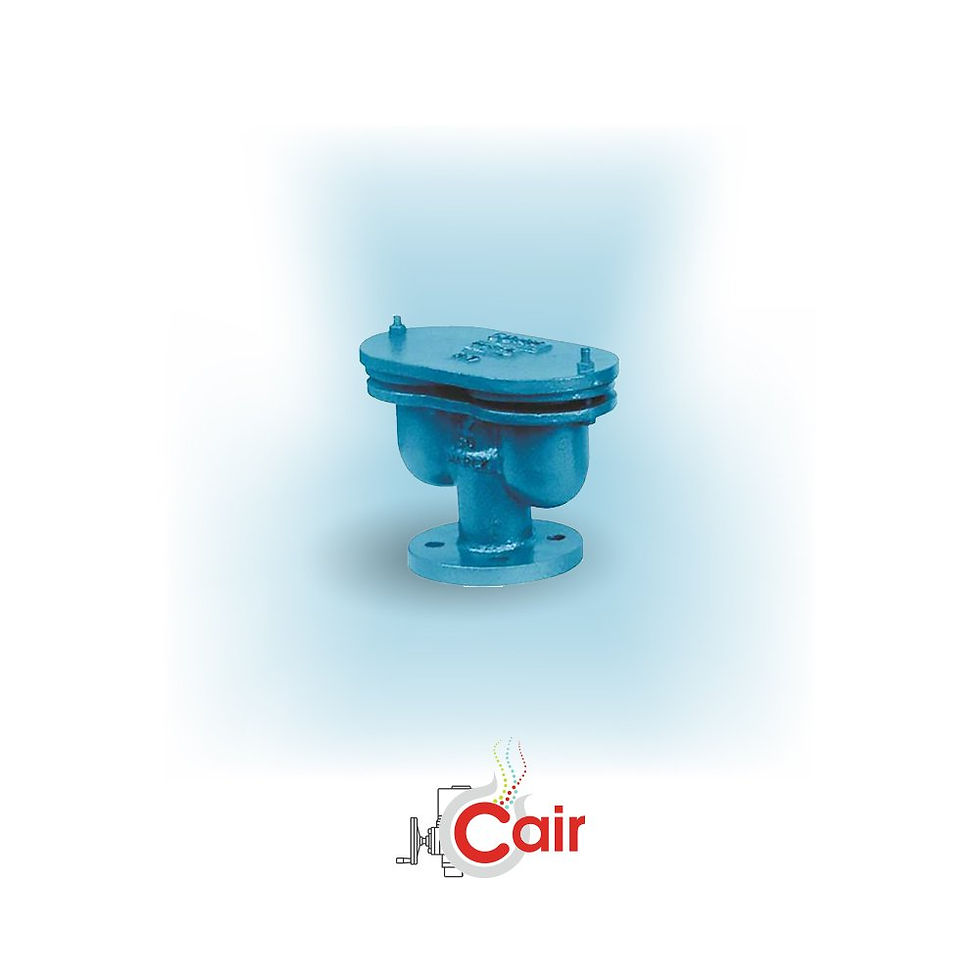The Role of Air Single and Double Valves in Controlling Airflow and Pressure
- resilientgatevalve
- Sep 1, 2023
- 3 min read
Air valves play a crucial role in various industries where precise control of airflow and pressure is essential. In this article, we'll delve into the significance of both single and double air valves, their applications, and the benefits they offer. From managing airflow in pipelines to ensuring optimal pressure levels, these valves are indispensable tools that contribute to efficient operations in numerous sectors.
Air valves are vital components used in fluid management systems to regulate airflow and pressure. They are designed to release air trapped in pipelines while preventing water hammering and maintaining optimal pressure levels. Air valves come in various types, with single and double air valves being the most commonly used.
Understanding Air Valves
Air valves are devices used to release accumulated air and gases from pipelines, ensuring the smooth flow of liquids. They prevent air pockets that can hinder the system's efficiency and cause pressure irregularities. There are two main types of air valves: single air valves and double air valves.
Types of Air Valves
Single Air Valves: These valves allow the release of air from the system but don't let air back in. They are used primarily for releasing large volumes of air when the pipeline is initially filled or drained.
Double Air Valves: These valves perform a dual function of releasing air and allowing air to re-enter the system. They are essential for maintaining optimal pressure levels and preventing vacuum formation.
The Significance of Single Air Valves
Single air valves play a crucial role in expelling large volumes of air during pipeline filling and draining processes. They ensure efficient system operation by preventing airlocks that can lead to reduced flow capacity and increased energy consumption.
Applications of Single Air Valves
Water Distribution: In water supply systems, single air valves help maintain consistent pressure levels, preventing water hammer and pipe damage.
Wastewater Management: In wastewater pipelines, these valves release air to prevent blockages and maintain steady flow.

The Advantages of Double Air Valves
Double air valves offer a more comprehensive solution for maintaining system pressure and preventing vacuum formation. They are equipped with a small orifice to release air slowly and a larger orifice to allow air back into the system.
Applications of Double Air Valves
Irrigation Systems: Double air valves ensure optimal pressure in irrigation pipelines, preventing water hammer and ensuring efficient water distribution.
Industrial Processes: Industries use double air valves to manage airflow in various processes, maintaining stable pressure levels for consistent production.
Key Differences Between Single and Double Air Valves
The primary distinction between air single and double valves lies in their functionality. While single air valves only release air, double air valves allow controlled re-entry of air into the system, maintaining balanced pressure levels.
Factors to Consider When Choosing Air Valves
When selecting air valves for a specific application, several factors must be considered:
System Type: The nature of the system and its fluid content.
Flow Rate: The rate at which the fluid flows through the pipeline.
Operating Pressure: The desired pressure levels within the system.
Pipeline Size: The diameter and length of the pipeline.
Environmental Conditions: Factors like temperature and exposure to corrosive elements.
Proper Maintenance for Longevity
Regular maintenance of air valves is essential to ensure their longevity and optimal performance. This includes inspection, cleaning, and repair if necessary. Neglecting maintenance can lead to reduced efficiency and potential system failures.
Innovations in Air Valve Technology
Advancements in technology have led to the development of smart air valves that can be remotely monitored and controlled. These valves offer real-time data on pressure, airflow, and maintenance needs, enhancing system efficiency and reducing downtime.
Enhancing System Efficiency with Air Valves
Air valves play a critical role in maintaining stable pressure levels, preventing water hammer, and optimizing fluid flow. Their proper selection, installation, and maintenance can significantly enhance the overall efficiency of fluid management systems.
Conclusion
Air valves, both single and double, are indispensable components for managing airflow and pressure in fluid systems. Whether in water distribution, wastewater management, irrigation, or industrial processes, these valves ensure efficient operations and prevent potential damage. By selecting the appropriate valve type, considering various factors, and embracing technological innovations, industries can achieve optimal system performance and longevity.
Comments